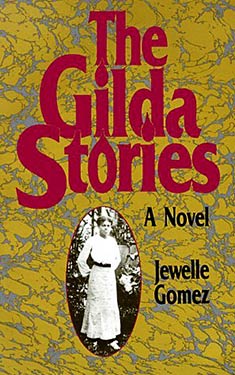Jewelle L Gomez
Completed
12/26/2019, Reviewed 12/26/2019
4 stars
This is not your typical vampire story. While most vampire literature focuses on the
sexy and the bloodthirsty, this book does so only subtly. It focuses more on the main character’s
search for self and relationship with other vampires and the world around
her. Gilda is a benevolent black lesbian
vampire, made in 1850, who travels across the country at various times through
the present and future. The stories are
vignettes that take place over a two-hundred-year span. At each stop, Gilda tries
to build or integrate into a community of other vampires as well as the
ordinary humans around her and struggles with whether it is worth the risk to
bring someone else into the fold simply to help her with her own loneliness. I found the book to be very readable with
great prose and subtle takes on racism, feminism, dominant culture, the environment,
and sexuality. The book won two Lambda
Literary Awards in 1991, for general lesbian literature and for lesbian sci
fi/fantasy/horror (back when the sf/f/h category was separated into gay and
lesbian).
 The plot is not really that grand, as the book is divided
into different stories at specific points in time over a two-hundred-year span. A slave girl in 1850 Mississippi runs away
from her master when her mother dies. She
is found by a vampire named Gilda and brought to live and work in a brothel as
a housekeeper. Eventually, the vampire
and her companion, a Native American named Bird, turn the slave girl into a
vampire like themselves. Bird acts as
her mentor, teaching her to read, write, and about life in general and as a
vampire. She acquires her name from Gilda,
her maker, when the older Gilda takes the voluntary of death of staying out in
direct sunlight. Unable to accept the
older Gilda’s death, Bird eventually returns to her people to rediscover her
own family and culture, leaving the younger Gilda to make her way in the world
alone. Eventually, she comes across
others like her, and develops tenuous relationships with normal humans.
The plot is not really that grand, as the book is divided
into different stories at specific points in time over a two-hundred-year span. A slave girl in 1850 Mississippi runs away
from her master when her mother dies. She
is found by a vampire named Gilda and brought to live and work in a brothel as
a housekeeper. Eventually, the vampire
and her companion, a Native American named Bird, turn the slave girl into a
vampire like themselves. Bird acts as
her mentor, teaching her to read, write, and about life in general and as a
vampire. She acquires her name from Gilda,
her maker, when the older Gilda takes the voluntary of death of staying out in
direct sunlight. Unable to accept the
older Gilda’s death, Bird eventually returns to her people to rediscover her
own family and culture, leaving the younger Gilda to make her way in the world
alone. Eventually, she comes across
others like her, and develops tenuous relationships with normal humans.
Gilda spends most of her time as an artist, whether it be as
a hairdresser, a theatrical worker, a writer, or a singer. At one point she’s also a farmer. The thrust of her existence though is to find
a community for herself. She does meet
up with other vampires with whom she does maintain relationships with throughout
the cycle of stories. But her primary
goal is to find someone who she can make a vampire to call brother or sister. The caveat though is to make sure she finds
someone who understands what they are getting into and to make sure the feeling
is mutual, that she is not doing it for selfish reasons. Even the code of the vampires’ eating habits
is about mutuality: life for life. When feeding,
the vampire must give something in return, usually a psychic peace or
resolution. Never does a vampire feed to
the death of their victims. There are
some vampires, however, who do not live by the code and Gilda does encounter
one in the 1955 story.
As I noted above, there is not a grand overarching plot through
the stories. Each one has its own
plot. The main theme is about finding
community, or home. Gilda, being the
main character, is the best developed, though the secondary characters are well-drawn
for being present for short periods of time.
The real star of the book is the prose.
Gomez is a terrific writer. She
doesn’t bang you over the head with issues.
She presents them subtly in the stories, making you care about them by
caring for Gilda and her plight.
I liked this book very much.
I was hard to put down. My only
problem with it was that I felt one step removed from the action. But in a sense, I understand this reaction I
had because Gilda always feels one step removed from the action herself. She is always the observer, never feeling
fully integrated into either the human or the vampire community. This is something I can relate to myself, as
I never feel fully a part of either the straight or the gay community. I play the observer, only very cautiously letting
someone close to me. So I could really
identify with Gilda at that level. I
give the book four stars out of five. It’s
a terrific read, and I’d highly recommend it to people who don’t like the
classic vampire story.
No comments:
Post a Comment